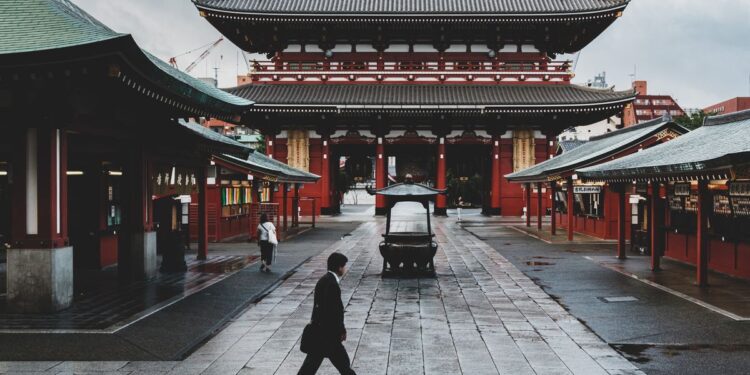*This article is part of a series of publications as part of our trip to Japan on the occasion of the Ticad 9
On the sidelines of the Ticad 9 in Yokohama, to which we were invited to cover the eventwe had the opportunity to observe the Japanese company closely. An experience that arouses an intriguing question: can we really compare Tunisia in Japan?
From a technological and economic point of view, the gap is immense. Japan, a global engine of innovation, excels in robotics, artificial intelligence and intelligent urban infrastructure. Tunisia, despite its efforts in terms of startups and digitalization, is still far behind. How many centuries take Tunisia to catch up with this Asian giant? The current pace suggests an almost irrat -transferable gap in the short term.
Added to this is the culture of work in Japan, almost sacred, where discipline and rigor structure daily life. Each citizen, from the employee to the entrepreneur, seems to be shaped by this requirement of perfection and efficiency. It is a fascinating but demanding model, where organizational individualism often takes precedence over social ties.
Indeed, Japan impresses with its almost sacred work culture. Discipline, punctuality and dedication are deeply anchored in each citizen, whether in ultra-organized offices or in small family businesses. Efficiency prevails, sometimes to the detriment of social life, and this requirement shapes the whole of society.
In Japan, the culture of work sometimes takes on almost sacred looks. An often quoted anecdote is that of employees who, even patients, refuse to leave their post, believing that being absent would be a moral fault towards their colleagues. In some companies, we have seen employees sleeping discreetly at their office – a practice called inemuri, tolerated because it proves the total investment in the task. This cult of work, pushed to the extreme, illustrates both the rigor and dedication of the Japanese, but also raises questions about the border between professional discipline and personal sacrifice.
It’s not just a matter of money
Indeed, if Tunisia, despite its efforts to support startups and the digitalization of public services, remains far behind, the differences are as one might wonder how many centuries would be necessary for Tunisia to make up for its Asian counterpart. It is not just a matter of money or politics: it is a whole technological, educational and cultural ecosystem that shapes the Japanese advance.
However, the comparison is not unilateral. Tunisia can also offer lessons in Japan. First, the flexibility and resourcefulness: Faced with economic or material constraints, Tunisians find ingenious solutions, whether in crafts, agriculture or “low-cost” technologies. This adaptability could inspire more accessible Japanese solutions close to local needs, especially in rural areas or in front of the emergency room.
Second, the community life and human warmth: Tunisian society values social ties, daily interactions and solidarity. In Japan, despite security and efficiency, social isolation remains a major challenge. The Tunisian experience shows the importance of a strong social fabric, capable of strengthening collective well-being.

Youth as an innovation engine
In Tunisia, youth proved that she could be a real transformation force. It is she who, through social networks, citizen mobilizations and local initiatives, has driven deep changes in society.
Movements like that of January 14, 2011 or the multiple collectives engaged in environmental protection, digital culture or even the solidarity economy bear witness to a remarkable capacity to invent new forms of action and solidarity.
This social creativity, carried by a youth often left to itself in a context of high unemployment, contrasts with the situation of Japan, where aging society slows down the emergence of new voices and struggles to integrate the aspirations of the young generations. By drawing inspiration from the Tunisian example, Japan could rediscover the potential of its own youth as an engine of social and political innovation, capable of reinventing models of participation and the future.
Thus, far from simply comparing levels of wealth or innovation, this observation highlights an exchange of values: Tunisia can admire Japan for its technology and discipline, while Japan could be inspired by Tunisia to humanize its company and enhance the resourcefulness. A fascinating duality that enriches the look of the two nations.








